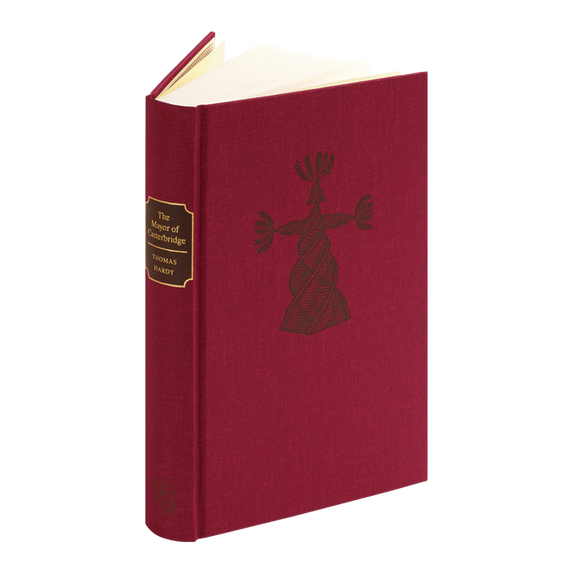
A meteoric social rise and fall is at the heart of Thomas Hardy’s The Mayor of Casterbridge. This stunning new Folio Society edition is part of our Wessex novels collection.
Illustrated by Peter Reddick
Preface by the author
Thomas Hardy’s tragic tale of failed ambition, Jude the Obscure, is illustrated by Peter Reddick and is published as part of the Folio Society Wessex collection.
A working-class orphan with aspirations for a university education, Jude Fawley is nothing if not ambitious. However, his class and economic situation drive him into a career as a stonemason, rather than to fulfil his scholarly leanings. It is a loveless marriage that finally propels him to pursue his dreams and find new love, but although his life follows a path that is dotted with joy, his ultimate fate is to suffer.
Bound in cloth blocked with a decorative motif
Set in Baskerville
416 pages
20 integrated black & white woodcut illustrations
Printed map endpapers
Printed slipcase
9˝ × 5¾˝
Social commentary ripples just below the surface in all the Wessex novels and yet the situation seems particularly unjust: in this instance a young man with modest dreams and the drive to achieve them is unable to succeed due to his working-class background. The theme is overriding and Hardy makes it clear that this failure to succeed compromises the rest of Jude’s life. The lingering regrets have catastrophic consequences later on when circumstances threaten Jude’s beloved family with homelessness and ultimately tears it apart.
Jude the Obscure is produced in series with the best of Thomas Hardy’s Wessex novels – Tess of the d’Urbervilles, Far from the Madding Crowd and The Mayor of Casterbridge. The edition is illustrated with 20 of Peter Reddick’s delightful wood engravings and includes printed map endpapers depicting Wessex in glorious detail. Reddick’s motifs also appear on the cloth binding and are replicated on the slipcase. This is made from Fragrance of Grass paper, which is created using an ancient Chinese paper-making method that results in a unique appearance and texture.
Thomas Hardy was born in Dorset, England in 1840 and was the eldest son of Thomas and Jemima Hardy. His rural upbringing instilled in him a love of the natural world and this was to combine with an appreciation of the built environment when he was apprenticed to a local architect, aged 16. He spent a brief period working in London as a draftsman before illness meant he had to return home in 1867. Throughout this time, Hardy developed his writing style and his second manuscript, Desperate Remedies (1871), was accepted and published. He wrote short stories and instalments for a tale called A Pair of Blue Eyes while writing further novels, and he was able to work solely as a writer when he left architecture. Wessex was first introduced in Far from the Madding Crowd (1874) and this and subsequent novels established Hardy as a household name. Tess of the d’Urbervilles (1891) and Jude the Obscure (1895) were his last two novels but he continued to write short stories and poems until his death in 1928.
Peter Reddick was born in Essex in 1924. He studied at the Royal Liberty School in Gidea Park until he was 18 and he then registered as a conscientious objector and undertook land work during the Second World War. It was during this time that his interest in wood engraving developed and he taught himself to engrave by cutting a length of tree trunk into rounds. Once the war was over, he returned to his studies, attending the Guildford and Cardiff schools of art and then the Slade School of Art in London. He focused on illustration but also worked as a tutor to supplement his income while demand for his work increased. Reddick illustrated more than 50 books during his career, including 18 volumes of Thomas Hardy works. He was a founder of the Spike Island art space in Bristol, a hub for contemporary art and design which showcases new and established artists. Reddick was a chairman of the studio until 2006 and he died in 2010.
